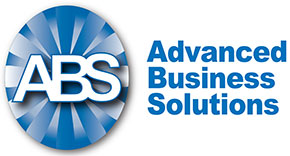Accounting and Controls for Loan Accommodations
In August, the Federal Financial Institutions Examination Council (FFIEC) issued additional guidance to provide prudent risk management and consumer protection principles for financial institutions. Guidance should be considered while working with borrowers as loans near the end of the initial loan accommodation periods provided during COVID-19. The statement also addresses issues relative to accounting and regulatory reporting and internal control systems.
Highlights in the guidance related to accounting and regulatory reporting, and internal control systems includes:
- Financial institutions must follow applicable accounting and regulatory reporting requirements for all loan modifications, including additional modifications made to borrowers who may continue to experience financial difficulties at the end of the initial accommodation period. The financial institution must maintain an appropriate allowance for loan and lease losses (ALLL) or allowances for credit losses (ACL), as applicable. The financial institution should consider all relevant and available information when assessing the collectability of cash flows, including changes in borrower financial condition, collateral values, lending practices, and economic conditions due to the COVID event. Borrowers facing identified financial difficulties as they near the end of the accommodation periods generally pose greater credit risk. It may be difficult for financial institutions to accurately determine the collectability of certain loans affected by the COVID event and may need more time to determine the effect on some borrowers’ long-term ability to repay and assess the value of underlying collateral. In accordance with GAAP and regulatory reporting instructions, management should consider the effect of the COVID event in its ALLL or ACL estimation processes and whether the resulting changes in estimated credit losses are in accordance with reporting requirements as additional information becomes available. Financial institutions may refer to regulatory reporting instructions, 17 section 4013 of the CARES Act, “Temporary Relief from Troubled Debt Restructurings” (section 4013), and the “Interagency Statement on Loan Modifications and Reporting for Financial Institutions Working with Customers Affected by the Coronavirus (Revised)” (Interagency Statement).
- Section 4013 provides financial institutions the option to temporarily suspend certain requirements under generally accepted accounting principles (GAAP) related to troubled debt restructurings (TDR) for a limited period of time to account for the effects of COVID. If a financial institution elects to account for a loan modification under section 4013, an additional loan modification could also be eligible under section 4013. To be eligible, each loan modification must be (1) related to the COVID event; (2) executed on a loan that was not more than 30 days past due as of December 31, 2019; and (3) executed between March 1, 2020, and the earlier of (A) 60 days after the date of termination of the National Emergency or (B) December 31, 2020. If a financial institution did not elect to account for a loan modification under section 4013 or a loan modification is not eligible under section 4013, additional modifications should be viewed cumulatively in determining whether the additional modification is a TDR. One example is if the financial institution had cumulative modifications for a loan that are all COVID event related, in total represent short-term modifications (e.g., six months or less combined), and the borrower is contractually current (i.e., less than 30 days past due on all contractual payments) at the time of the subsequent modification, management may continue to presume the borrower is not experiencing financial difficulties at the time the loan was modified for purposes of determining TDR status, and the subsequent modification of loan terms would not be considered a TDR.
- Prudent risk management practices at the end of initial accommodation periods and for additional accommodations include quality assurance, credit review, operational and compliance risk, and internal audit functions that are commensurate with the size, complexity, and risk of the institution’s activities. The internal controls would include targeted testing of the process for managing each stage of the accommodation. The testing should confirm accommodation terms are extended with appropriate approval; additional accommodation options offered to borrowers are handled in a fair and consistent manner and comply with applicable laws and regulations ( including fair lending laws); core systems accurately consolidate balances, calculate required payments, and process billing statements for the repayment terms that exist once the accommodation periods end; communications with the borrower and legal documentation, are clear, accurate, and timely, and in accordance with contractual terms, policy and regulatory requirements, and federal and state laws; and risk rating assessments are timely and appropriately supported.
The Interagency Statement on Additional Loan Accommodations Related to COVID-19 Event discussed above can be found here. As you navigate through making loan accommodations and accounting for those items, ABS is here to answer any questions you may have.




